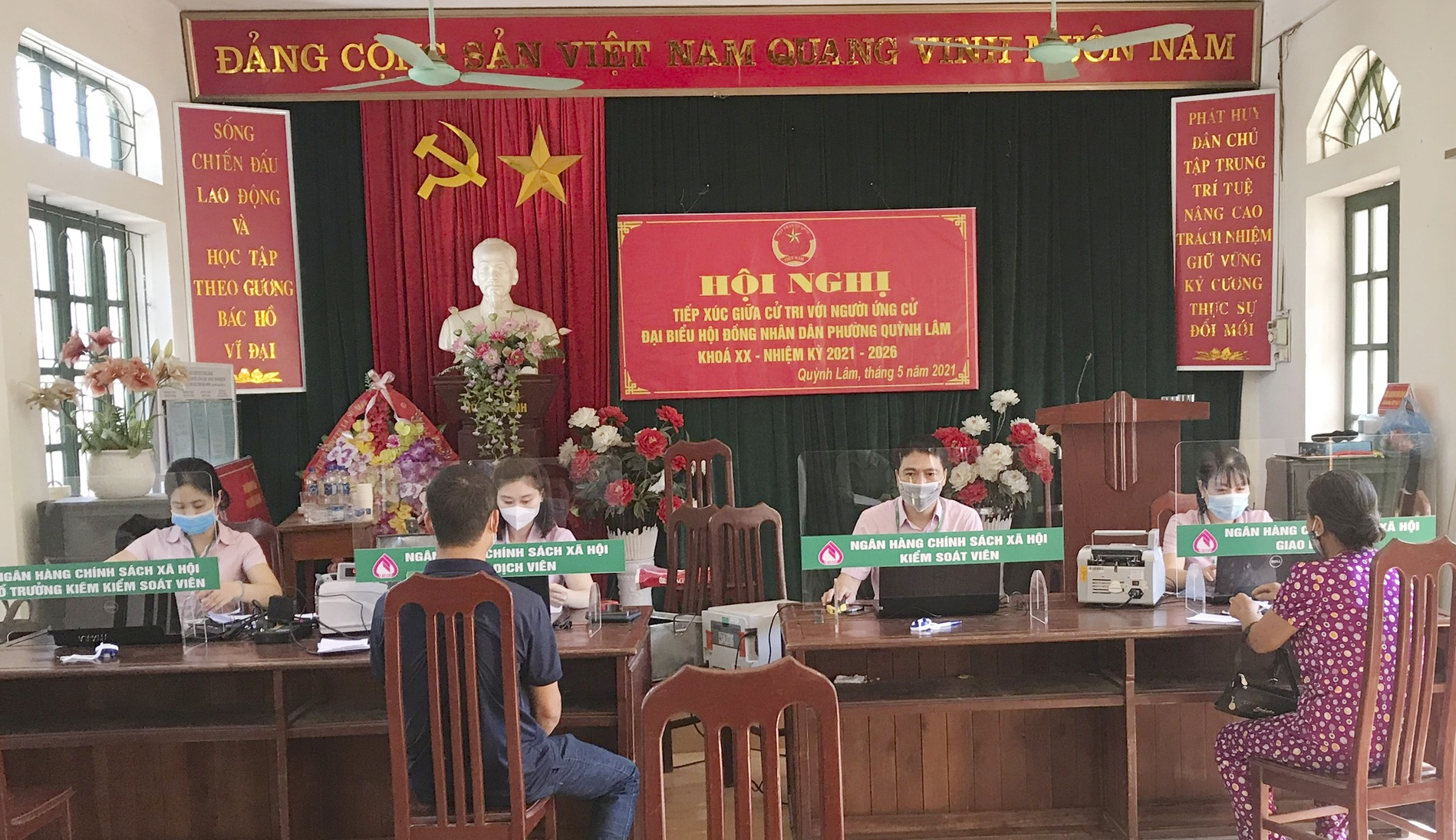INTERNATIONAL INVESTMENT
AND PORTAL
 Policy credit has helped many needy people and other policy beneficiaries to become more confident and improved their status in society
Policy credit has helped many needy people and other policy beneficiaries to become more confident and improved their status in society
Reality shows that policy credit has contributed to tackling radical issues facing needy households and other policy beneficiaries in life, helping them to gradually improve the quality of life, reduce diseases, illiteracy, and other social evils.
Via the Vietnam Bank for Social Policies (VBSP) system, needy households and other policy beneficiaries have accessed the government’s capital sources to practice doing business and create jobs to gradually improve production and business management, as well as capital management to rise out of poverty and set up commodity-based production in rural areas.
Notably, using policy credit sources has helped needy households and those based in ethnic minority groups to become more confident and improve their status in society.
Reforming and expanding credit policies to raise the lending limit and establish new lending models based on value chains, as well as expanding people groups eligible to borrow from the VBSP system are also a must.
Through using policy credit sources, needy households and other policy beneficiaries could procure more production means, create livelihoods to improve their income and living standards, and meet their daily essential needs such as tuition fees for their children, building houses, clean water, and sanitation facilities, as well as minimise shark loans in rural areas and among ethnic minority groups.
In addition, policy credit has impacted all facets of the lives of needy households, ethnic minority groups, and other policy beneficiaries, and promoted socioeconomic development across Vietnam, strengthening the political system at the grassroots level, consolidating national solidarity, ensuring social well-being, social order and security, while developing human resources and mitigating climate change impacts.
With such results, policy credit has contributed to the effective implementation of the national target programmes on sustainable poverty reduction and building new-style rural areas as assessed by the National Assembly Social Affairs Committee: “Policy credit activities continue to prove practical and efficient and have been the highlight of poverty reduction, with diverse capital sources complementing each other to support needy people and households.”
Remaining hardshipsDespite its overarching success, some limitations have persisted in deploying policy credit activities. For instance, capital allocation at government-assigned policy credit programmes has failed to keep up with actual demands, particularly at capital-intensive programmes like those to support job creation or loans for production and trading households in difficult areas, leaving part of the people eligible to borrow without a loan.
In the meantime, there is still a limit to the type of beneficiaries of government credit programmes. For instance, credit programmes to support the socioeconomic development of ethnic minorities and rural areas are confined to select groups. Families with medium living standards could not borrow from the programme while many of them are hard-pressed to find extra capital sources to support their children’s education, as well as to invest in production and business expansion.
In some areas, cooperation between agriculture, forestry, and fisheries promotion, technical support, technology transfer activities of diverse state organisations, businesses, social and political groups, and social credit activities have not been efficient, leading to part of needy people and policy beneficiaries failing to escape poverty in a sustainable manner.
The solutionsTo continue effectively implementing social policy credit programmes, it is important to focus resources on policy credit development, unite policy credit from other organisations to VBSP system, further allocate state budget under medium-term investment plans to VBSP and timely provide capital sources to lend newly-enacted policy credit programmes.
It is also necessary to raise the limit of government-guaranteed bond issuances, helping the VBSP system to raise long-term and stable capital sources to feed customers’ demands.
Local governments need to pay due heed to replenishing VBSP capital sources from the local budget and other legitimate sources to increase lending to needy households and other policy beneficiaries.
Reforming and expanding credit policies to raise the lending limit and establish new lending models based on value chains, as well as expanding people groups eligible to borrow from the VBSP system are also a must.
To improve the efficiency of capital usage, it is also important to push up agriculture, forestry and fisheries promotion activities, as well as vocational training in favour of needy households and policy beneficiaries, along with strengthening control and supervision to raise the capacity and operation efficiency of political and social organisations, particularly those at commune level and savings groups in implementing activities authorised by VBSP. Doing a smart job with propagating policy credit, managing and guiding borrowers to use the capital sources effectively are also of equal importance.



















